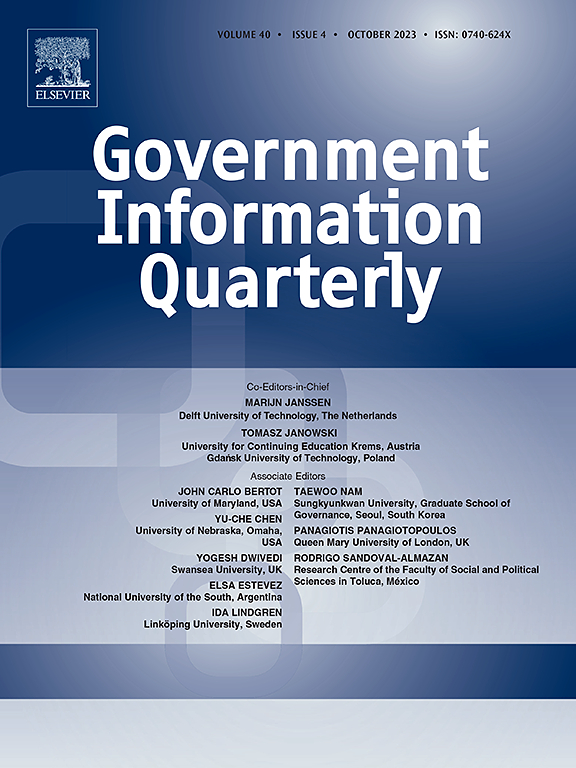协同创新中的平行学习循环:来自数字政府的见解
IF 10
1区 管理学
Q1 INFORMATION SCIENCE & LIBRARY SCIENCE
引用次数: 0
摘要
在公共部门实施数字创新,如电子健康记录(EHRs),需要决策者参与学习过程。本文研究了集体学习过程如何在协作创新中展开,重点是瑞士国家电子健康记录(EHR)系统的发展。在政策学习和协作治理文献的基础上,我们将学习概念化为两个相互依存的过程:政策导向学习(关注技术有效性)和权力导向学习(关注政治可行性)。通过39次半结构化访谈和广泛的文件分析,我们发现电子病历倡议遵循了一个循序渐进的学习模式——在获得足够的政治支持之前就制定了技术解决方案——导致了政治上得到认可,但技术上存在缺陷的实施。该研究引入了平行学习循环的概念,以解释同时参与技术和政治维度如何改善创新成果。这些发现促进了对数字政府协作学习的理论理解,并强调了在复杂创新过程中支持技术和政治同步审议的制度设计的必要性。本文章由计算机程序翻译,如有差异,请以英文原文为准。
Parallel learning loops in collaborative innovation: Insights from digital government
The implementation of digital innovations in the public sector—such as Electronic Health Records (EHRs)—requires decisionmakers to engage in learning processes. This article investigates how collective learning processes unfold in collaborative innovation, focusing on the development of Switzerland's national Electronic Health Record (EHR) system. Building on policy learning and collaborative governance literatures, we conceptualize learning as comprising two interdependent processes: policy-oriented learning (focused on technical effectiveness) and power-oriented learning (concerned with political feasibility). Drawing on 39 semi-structured interviews and extensive document analysis, we find that the EHR initiative followed a sequential learning pattern—technical solutions were developed before sufficient political support was secured—leading to a politically endorsed but technically flawed implementation. The study introduces the concept of parallel learning loops to explain how simultaneous engagement with technical and political dimensions can improve innovation outcomes. These findings advance theoretical understanding of collaborative learning in digital government and underscore the need for institutional designs that support concurrent technical and political deliberation in complex innovation processes.
求助全文
通过发布文献求助,成功后即可免费获取论文全文。
去求助
来源期刊

Government Information Quarterly
INFORMATION SCIENCE & LIBRARY SCIENCE-
CiteScore
15.70
自引率
16.70%
发文量
106
期刊介绍:
Government Information Quarterly (GIQ) delves into the convergence of policy, information technology, government, and the public. It explores the impact of policies on government information flows, the role of technology in innovative government services, and the dynamic between citizens and governing bodies in the digital age. GIQ serves as a premier journal, disseminating high-quality research and insights that bridge the realms of policy, information technology, government, and public engagement.
 求助内容:
求助内容: 应助结果提醒方式:
应助结果提醒方式:


